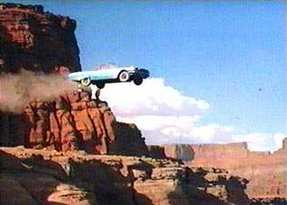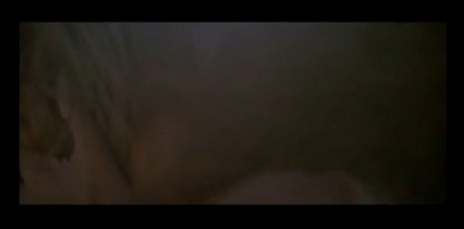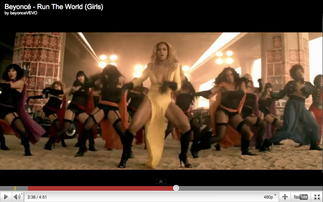 Thelma and Louise's Happy Ending
Thelma and Louise's Happy Ending Anyway, Terry Gross was interviewing Callie Khouri, who had written the screenplay. And, of course, they were talking about the ending of the film. The killing of the man was iconic, but it was the ending that enabled the iconicity. Rather than be arrested, the two women drive off the edge of the Grand Canyon together. Callie, in the NPR interview, gives her take on this ending: “They got away.” Perhaps, the more accurate response is the statement she made when picking up her Oscar in 1992: “For everyone who wanted to see a happy ending for Thelma and Louise, for me this is it.” Yep. And there's a connection. If they hadn't driven off the Grand Canyon, Khouri would never had gotten the Oscar. In fact, the film would never have gotten made.
 Thelma and Louise: The Worst-Ever Filming of a Lesbian Kiss in Hollywood History
Thelma and Louise: The Worst-Ever Filming of a Lesbian Kiss in Hollywood History "Consider the 1990 film Thelma and Louise. They are survivors of male violence. They are outlaws. They have killed a would-be rapist. They are on the run. And finally, they indulge in a passionate, lip-locked, lesbianic kiss. [which is filmed so poorly this was the best screenshot I could get...] Now, in the lesbian paradigm, that would be the turning point… the beginning of their journey out of the nightmare: They kiss, they look at each other, they yell “yee-haw”—and then they get down to the business of survival: They ditch the car. Duh. They dye their hair. Duh. They go underground on any one of the dozens of women's lands all over the US. They're in Arizona, right? They could go to A***. Or A***** J*****, which is an entire village of lesbians. They get healthy. They heal. They make love. They change their diets. They do yoga. They dance under the full moon. They build a hay bale house. They go to the women's festivals. They make their own clothes or just don't wear any. They get wilder and more politically clear-eyed every minute. They dedicate themselves to women, to the environment. They have a zillion delicious options. But, in the movie, they go off a cliff. In the patriarchal paradigm that is all they can do after that kiss. Lesbianism is the fate worse than death. The movie may be dated, but it is still one of the very few that dares to depict girl buddies who retaliate against perpetrators. The ending is not accidental, nor is the timing of the kiss—coming after the decision to commit double suicide."
I would not have had such a strong objection to the ending, if it had been depicted with the same attention to detail as, say, the blowing up of the truck. You know… the car making impact, rolling and bouncing down the canyon, the screaming terror on the faces… and finally the still shot of the carnage. But that’s not in Callie’s screenplay. What happens? The screen goes blank. You know… death, transcendence. That romantic high-school fantasy that promotes so much youth suicide.
No, show the reality, or don’t go there. How many girls and women have taken their lives because of the romance of the white screen, the belief that this would be their triumphant escape… or how, as Callie Khouri might put it, they could get away?
 Teaching Girls How to Run the World
Teaching Girls How to Run the World Yesterday, Beyoncé “dropped” her newest video: “Girls Who Run the World.” Iconically speaking, she’s got some interesting visuals… an army of men coming after a renegade band of women in what appears to have been a global gender massacre. The men have the usual arsenal of firearms, but of course, the women have that secret weapon that brings them all to their knees... oh, wait, our knees... what? Anyway, the women have that pornographic fantasy thing… the clothing, the moves. Beyoncé’s response to armed aggression is to “drop it like it’s hot” and crawl across the floor twitching her pelvis. In a lyric that says it all, she whispers, “Hope you still like me…”
I know, I know. This is mainstream media. Why am I wasting my time even writing about it? Well… I will tell you. Because I just want to point out the hijacking, the disconnect. It’s one thing to present women as brainless fembots whose only ambition in life is to fulfill male fantasies. It’s another to begin with an acknowledgement that women are targets and prey and that we don’t like it, and then to attempt to glorify capitulation as empowering resistance. I’m talking about that damned white screen and the nincompoopery of crawling around on the floor.
Because women are, unfortunately, watching. And girls are watching, too. Teaching is going on. Callie Khouri is interpreting for us--at the Oscars, on NPR. “This is what escape looks like.” “This is what winning looks like.” But here’s the thing. You have to be alive to escape. Yeah. I know… radical. And you have to defeat your opponent/enemy in order to win. Unclear about what that means? Try “beat, conquer, rout, trounce, crush, thrash, whip, wipe the floor with, make mincemeat of, clobber, slaughter, demolish.”
Callie made a film the same way Beyoncé made her video: hoping that the men who control the industry, and the women who are subject to them, will still like her. And they did and they do and I don’t. If you want to know what real resistance looks like, read my plays.

 RSS Feed
RSS Feed
